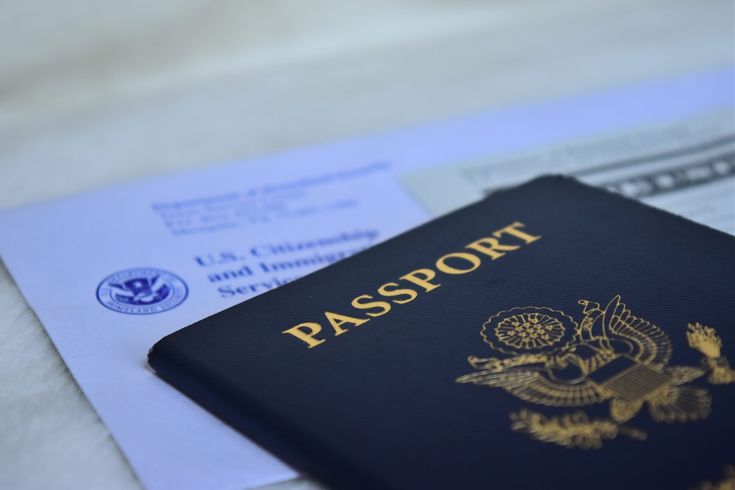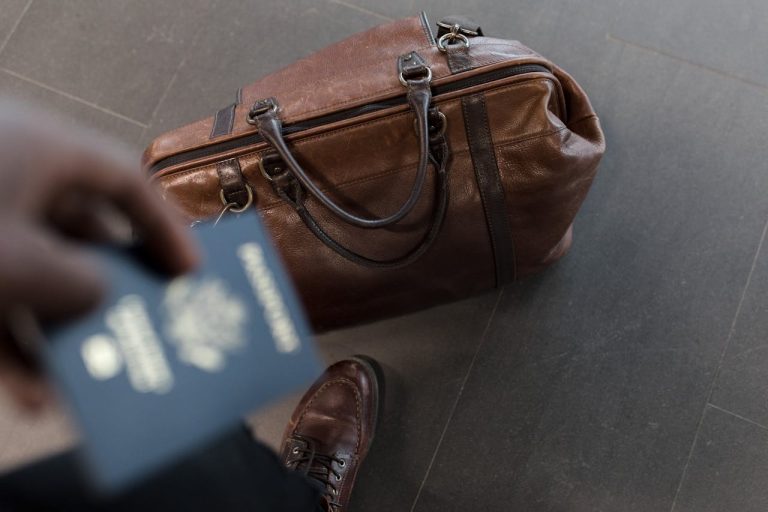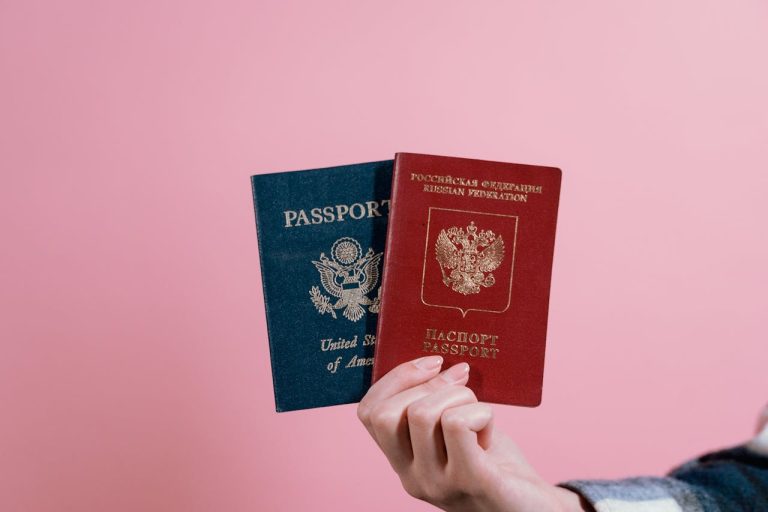In today’s interconnected world, obtaining a second passport has become an increasingly attractive option for Nigerian expats. Whether for ease of travel, enhanced business opportunities, access to better education and healthcare systems, or improved quality of life, a second passport can open numerous doors. For Nigerian citizens, the quest for a second nationality often revolves around factors such as visa-free access to more countries, residency requirements, and investment or citizenship-by-descent programs.
This article explores the best second passport options available to Nigerian expats, with a detailed look at the advantages, eligibility criteria, and processes for obtaining them.
Why Seek a Second Passport as a Nigerian?
- Visa-Free Travel: Nigerian passport holders face significant travel restrictions, needing visas for most countries around the world. A second passport can grant visa-free or visa-on-arrival access to a greater number of destinations, particularly in Europe, the Americas, and parts of Asia.
- Security and Stability: A second passport can offer a safety net in times of political or economic instability. It provides an escape route if situations in the home country become untenable.
- Tax Benefits: Certain countries with favorable tax regimes can help expats reduce their global tax burden. Countries offering citizenship by investment often provide these benefits.
- Better Quality of Life: Access to better healthcare, education, and a more stable economic environment are some of the key benefits that come with certain second passports.
- Business Opportunities: Many countries offer superior business environments, easier access to global markets, and more robust financial institutions. A second passport can provide the legal and financial flexibility needed to conduct business internationally.
Factors to Consider When Choosing a Second Passport
Before diving into the best options, it’s crucial to understand the factors that Nigerian expats should consider when selecting a second passport:
- Visa-Free Access: How many countries can you travel to without needing a visa? This is one of the primary reasons for acquiring a second passport.
- Investment or Financial Commitment: Many countries that offer citizenship or residency through investment have varying levels of financial requirements. Be sure to assess how much you are willing to invest.
- Time to Citizenship: Some countries offer citizenship immediately, while others may require several years of residency before citizenship is granted.
- Residency Requirements: Some countries require you to live there for a certain period, while others do not require any physical presence.
- Dual Nationality Restrictions: Nigeria allows dual nationality, but some countries do not. It’s important to ensure that acquiring a second passport won’t result in the loss of your Nigerian citizenship.
Top Second Passport Options for Nigerian Expats
1. St. Kitts and Nevis
Program: Citizenship by Investment (CBI)
St. Kitts and Nevis is one of the most popular countries for Nigerian expats seeking a second passport. The Citizenship by Investment program allows individuals to obtain citizenship in exchange for a financial contribution to the country.
- Visa-Free Access: 156 countries, including the UK, Schengen Area, Hong Kong, and Singapore.
Investment Requirements:
- $150,000 contribution to the Sustainable Growth Fund (SGF) for a single applicant.
- $200,000 minimum investment in real estate.
- Residency Requirements: None.
- Processing Time: 3-6 months.
Advantages:
- St. Kitts and Nevis passport holders can travel freely to a large number of countries.
- The country has no personal income tax.
- Quick processing time compared to other programs.
2. Grenada
Program: Citizenship by Investment
Grenada offers one of the most competitive second passport programs, with strong visa-free access and a unique perk of visa-free access to China, a rarity among citizenship programs.
- Visa-Free Access: 146 countries, including the UK, Schengen Area, China, and Russia.
Investment Requirements:
- $150,000 non-refundable contribution to the National Transformation Fund.
- $220,000 minimum real estate investment.
- Residency Requirements: None.
- Processing Time: 3-4 months.
Advantages:
- Grenada has an E-2 visa treaty with the United States, allowing citizens to apply for a U.S. non-immigrant visa.
- No tax on worldwide income, capital gains, or inheritance.
- Fast and efficient processing.
3. Dominica
Program: Citizenship by Investment
Dominica’s program is one of the most affordable for Nigerian expats. It is well-established, offering citizenship in exchange for a relatively small financial contribution or real estate investment.
- Visa-Free Access: 144 countries, including the UK, Schengen Area, Singapore, and Hong Kong.
Investment Requirements:
- $100,000 non-refundable donation to the Economic Diversification Fund.
- $200,000 minimum real estate investment.
- Residency Requirements: None.
- Processing Time: 3-6 months.
Advantages:
- Affordable investment options.
- The country does not tax income earned abroad.
- Dominica has a good reputation for transparency and efficiency in its program.
4. Antigua and Barbuda
Program: Citizenship by Investment
Antigua and Barbuda’s CBI program is another excellent option for Nigerian expats. It offers a relatively affordable route to citizenship, along with strong visa-free travel benefits.
- Visa-Free Access: 151 countries, including the UK, Schengen Area, Hong Kong, and Singapore.
Investment Requirements:
- $100,000 donation to the National Development Fund (NDF).
- $200,000 minimum real estate investment.
- Residency Requirements: You must spend at least five days in the country within five years.
- Processing Time: 3-6 months.
Advantages:
- Affordable donation route.
- Family-friendly program, allowing inclusion of dependents.
- No tax on worldwide income.
5. Turkey
Program: Citizenship by Investment
Turkey offers a robust citizenship-by-investment program with significant global travel advantages. For Nigerian expats, the country’s strategic location between Europe and Asia makes it an appealing option.
- Visa-Free Access: 125 countries, including Japan, South Korea, and Singapore (visa-free or visa on arrival).
Investment Requirements:
- $400,000 minimum investment in real estate.
- Residency Requirements: None.
- Processing Time: 3-6 months.
Advantages:
- Strategic geographical location.
- Offers access to a larger number of countries.
- Real estate market is dynamic, with potential for appreciation.
6. Portugal
Program: Golden Visa (Residency by Investment)
Portugal’s Golden Visa is one of Europe’s most popular residency-by-investment programs, which can lead to citizenship after five years. Nigerian expats looking for a route to European citizenship will find this program particularly attractive.
- Visa-Free Access: As a Portuguese citizen, you can travel visa-free to 187 countries, including the UK, the U.S., and Canada.
Investment Requirements:
- €280,000 minimum investment in real estate.
- €500,000 capital investment.
- Residency Requirements: You need to spend a minimum of seven days per year in Portugal.
- Processing Time: 12-18 months for initial residency, citizenship after five years.
Advantages:
- Strong EU passport with access to the Schengen Area and beyond.
- Path to European Union citizenship.
- Excellent healthcare and education systems.
7. Malta
Program: Citizenship by Naturalization for Exceptional Services by Direct Investment
Malta offers a direct route to citizenship through significant financial investment. While expensive, this program is highly coveted due to Malta’s EU membership and the benefits that come with it.
- Visa-Free Access: 187 countries, including the U.S., UK, and Schengen Area.
Investment Requirements:
- €600,000 contribution for citizenship in 36 months.
- €750,000 for expedited citizenship in 12 months.
- Purchase or rent of real estate.
- Residency Requirements: Must reside in Malta for at least 12-36 months, depending on investment level.
- Processing Time: 12-36 months.
Advantages:
- Access to the entire European Union and Schengen Area.
- High-quality healthcare and education systems.
- Full EU citizenship with the right to live, work, and study anywhere in the EU.
8. Vanuatu
Program: Citizenship by Investment
Vanuatu offers one of the fastest and most cost-effective ways to obtain a second passport through its Citizenship by Investment program.
- Visa-Free Access: 133 countries, including the UK, Schengen Area, and Singapore.
Investment Requirements:
- $130,000 contribution to the Vanuatu Development Support Program.
- Residency Requirements: None.
- Processing Time: 1-2 months.
Advantages:
- One of the fastest processing times for citizenship.
- No taxes on income, wealth, or inheritance.
- Ideal for those seeking quick and easy second citizenship.
For Nigerian expats seeking a second passport, the options are diverse and cater to different priorities. Whether you’re looking for ease of travel, enhanced business opportunities, or a better quality of life, each country’s program offers its unique set of benefits. From the Caribbean nations like St. Kitts and Nevis, Grenada, and Dominica, to European options such as Portugal and Malta, each destination offers a path tailored to various personal, financial, and lifestyle goals. The choice of a second passport depends on your priorities, whether you’re focused on fast processing times, investment thresholds, or global mobility.
Tips for Nigerian Expats Seeking a Second Passport
Here are some important tips to keep in mind when considering acquiring a second passport:
- Research Thoroughly: Don’t rush the decision-making process. Study the requirements of each program carefully to ensure that it aligns with your goals.
- Assess Your Financial Situation: Some programs require significant financial investment. Make sure you have the resources to meet the requirements, and assess the long-term value of the investment.
- Understand the Benefits Beyond Visa-Free Travel: While visa-free access is a primary reason to acquire a second passport, you should also look into other benefits such as tax advantages, healthcare access, and education opportunities.
- Consult a Professional: Immigration laws and citizenship programs can be complex. It’s often helpful to consult with a legal or financial advisor who specializes in international residency and citizenship.
- Prepare for a Lengthy Process: While some countries offer fast-tracked citizenship, others require longer periods of residency before citizenship is granted. Be prepared for the time commitment, especially if you’re considering European countries with longer processing times.
- Consider Family Inclusion: Many citizenship-by-investment programs allow you to include your family members (spouse and dependent children) under a single application. This can be a cost-effective way to secure a better future for your entire family.
Long-Term Benefits of a Second Passport
For Nigerian expats, a second passport offers much more than just easier travel. The long-term benefits can be transformative:
- Access to Global Education: Many countries offering citizenship by investment have excellent educational institutions, from primary schools to universities. Having citizenship can lower tuition fees and open doors to world-class education for your children.
- Healthcare Access: Countries like Portugal and Malta provide top-tier healthcare systems. As a citizen, you and your family can benefit from affordable and often free healthcare services.
- Business Opportunities: With a second passport, Nigerian expats can establish businesses in countries with stronger economies, lower taxes, and more favorable regulatory environments. Being able to reside in multiple countries also expands your network and global reach.
- Tax Planning: Some countries, such as Vanuatu and St. Kitts and Nevis, offer significant tax advantages, including no taxes on worldwide income, capital gains, or inheritance. This is particularly useful for high-net-worth individuals and entrepreneurs seeking to optimize their tax planning.
- Global Mobility: One of the most significant benefits is the ease of travel. For instance, having a passport from a Caribbean country can allow visa-free access to over 150 countries, which is a major improvement over the Nigerian passport.
- Retirement Options: A second passport also provides excellent retirement options. Countries with citizenship by investment programs, especially in the Caribbean, offer serene environments, good healthcare, and favorable tax conditions for retirees.
For Nigerian expats, the decision to obtain a second passport is a strategic one, with benefits ranging from enhanced global mobility to better business and lifestyle opportunities. The best second passport option will depend on your specific needs, goals, and financial capacity. If quick and easy travel access is your priority, programs in the Caribbean such as those offered by St. Kitts and Nevis, Grenada, or Dominica are ideal. On the other hand, if you are looking for long-term investment, access to the European Union, or a more developed economy, then options like Portugal, Malta, and Turkey are worth exploring.
As you navigate the process, keep in mind the factors that are most important to you—whether that’s visa-free travel, financial investment, tax optimization, or lifestyle improvement. With the right guidance and planning, securing a second passport can be a valuable asset for you and your family, offering security, freedom, and opportunities that transcend borders.









Leave a Comment